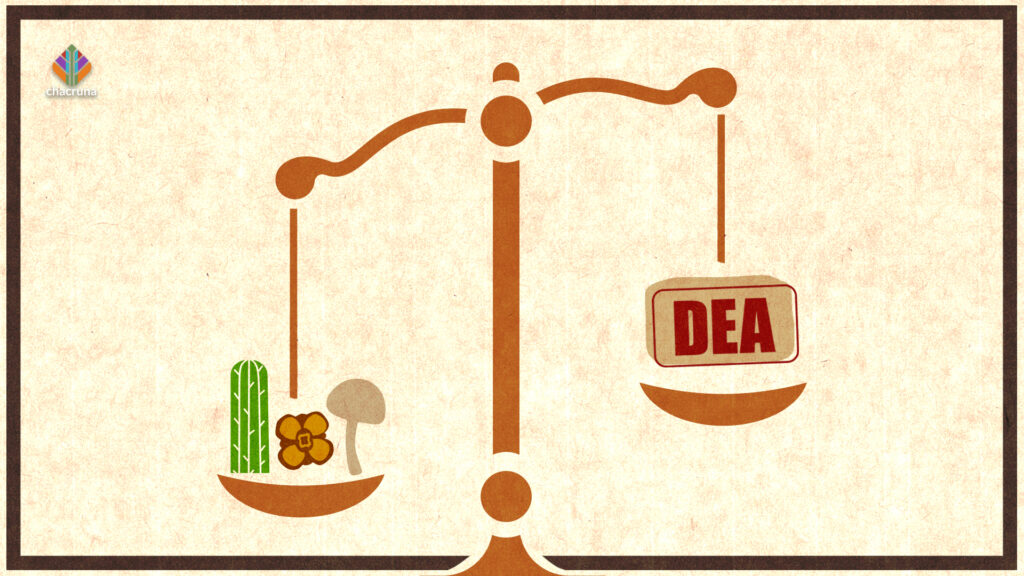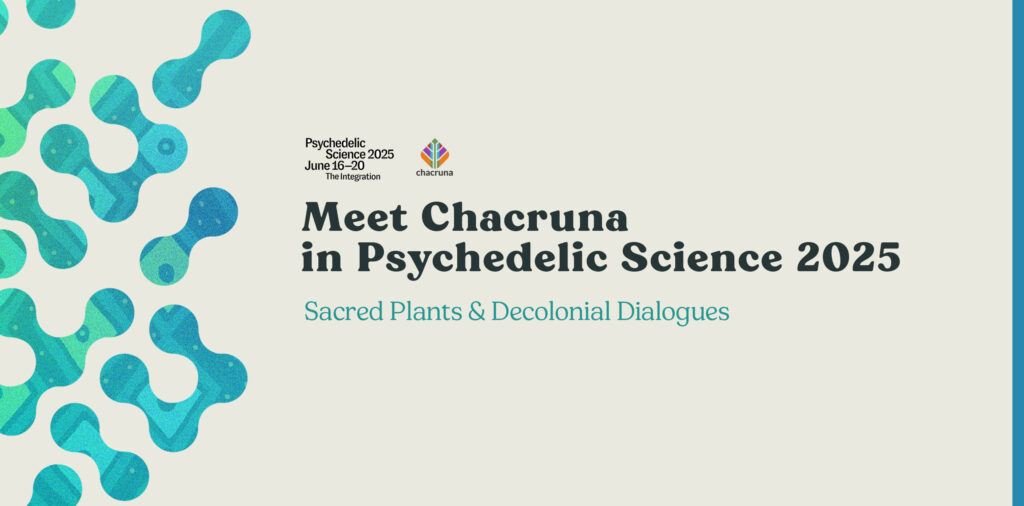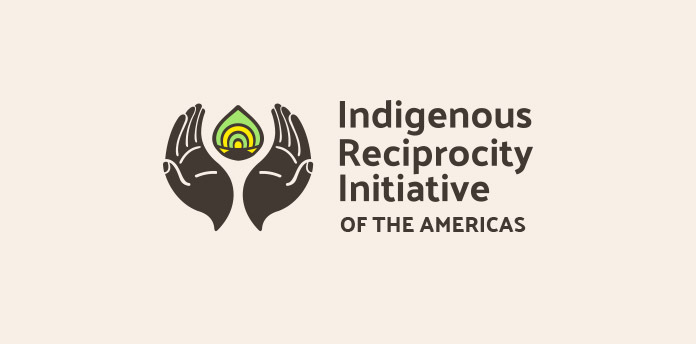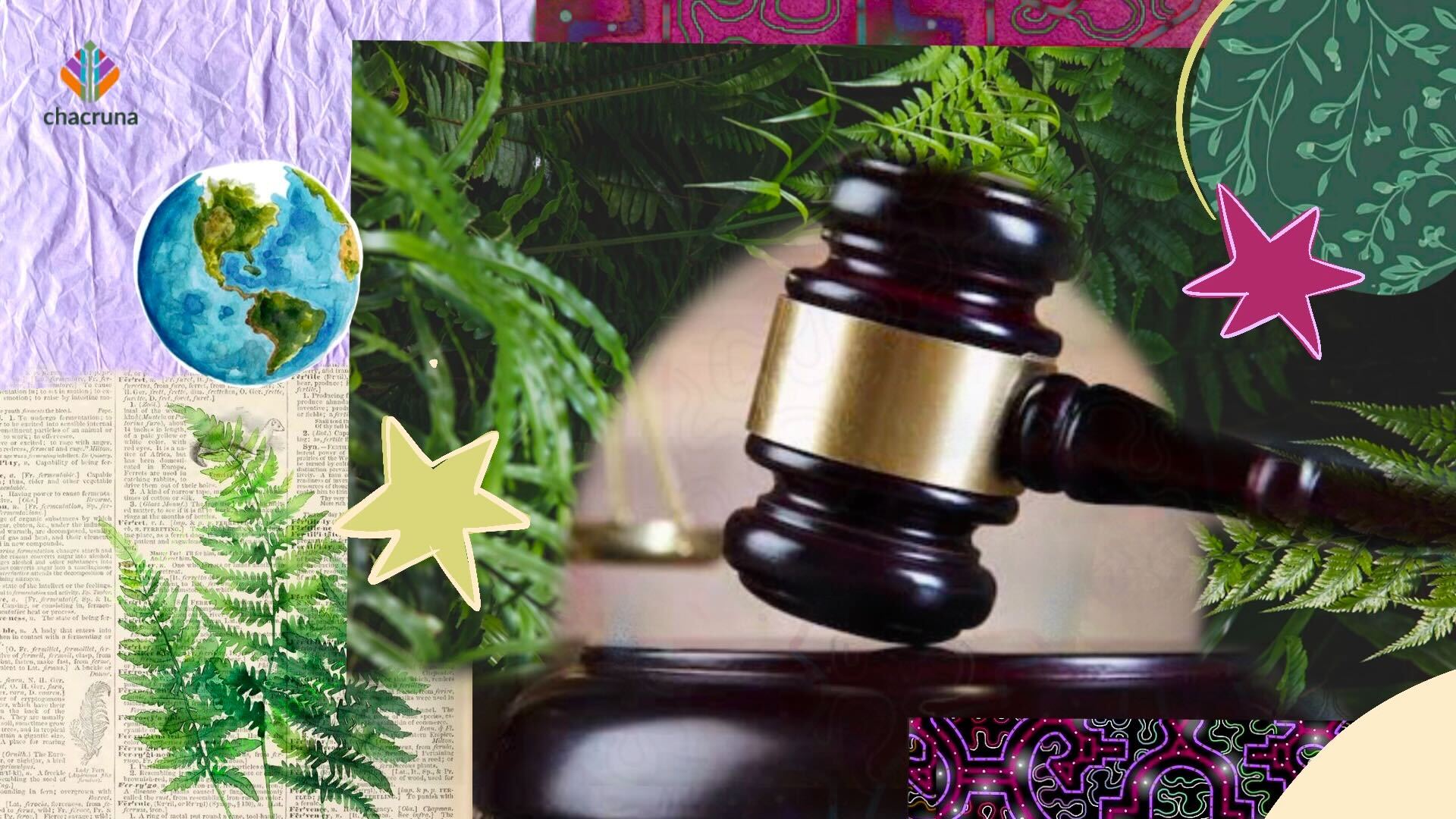- Sacred Plant Alliance to Sue DEA Over Religious Exemption Process - June 13, 2025
- The Mission and Programs of Sacred Plant Alliance - September 23, 2024
- Chacruna Institute Files Amicus Brief in Support of Sacramental Churches’ Rights under RFRA Appeal - October 20, 2023
As part of their legal advocacy, Sacred Plant Alliance intends to file a lawsuit to reform the Drug Enforcement Agency’s Guidance on its religious-based exemption process
More individuals are seeking the profound spiritual experiences accessed through religious practices involving the ceremonial use of sacred, consciousness-altering substances for spiritual purposes (sometimes referred to as “sacraments” or “entheogens”). It is fundamental that these “sacramental” practices are accessible within safety-oriented, ethically-aligned, and legal religious settings as intended by the U.S. Religious Freedom Restoration Act (RFRA).1
To realize this vision, Sacred Plant Alliance (SPA) works to promote collaborative best practices among sincere churches, and we advocate for the legal recognition of these communities consistent with the freedom of religion guaranteed in the United States.
To realize this vision, Sacred Plant Alliance (SPA) works to promote collaborative best practices among sincere churches, and we advocate for the legal recognition of these communities consistent with the freedom of religion guaranteed in the United States.
Therefore, SPA intends to file a civil suit against the U.S. Drug Enforcement Administration (DEA) for violations of RFRA and the Administrative Procedure Act (APA). Currently, the DEA requires churches seeking federal recognition of their religious freedoms to follow the DEA’s religious petition guidance, which is clearly non-compliant with these federal statutes. The DEA’s direction to abide by illegal and ineffective guidance is injuring SPA’s members and the many other U.S citizens engaged in these religious traditions.
If SPA is successful, the DEA would be required to provide a legally compliant religious-based exemption petition process, establishing for the first time in our country, a meaningful administrative pathway for sincere religious practitioners to register with the DEA and thereby protect, enjoy, and celebrate these sacramental practices that are constitutionally guaranteed as the right to religious exercise. In turn, this will improve public health, allow compliance with the law, and encourage above-ground practice, accountability, and safety among U.S. citizens who practice these faith traditions now and will do so for generations to come.
Sacred Plant Alliance
Sacred Plant Alliance (SPA) is a self-regulating association of churches dedicated to protecting and expanding legal pathways for the sincere religious use of sacraments and reinforcing ethical practices in religious communities. In order to join SPA, member churches undergo a detailed review of their procedures and organizational structure, and they commit to SPA’s membership agreements. SPA churches are well-established and have been operating as organized spiritual communities in the U.S. for 15 years on average and are directed by leaders with extensive experience in these practices. Our members’ congregations average 350 individual members, which means SPA provides resources to approximately 4,200 individuals.
SPA’s Corporate Officers, Advisory Board, and staff are all highly dedicated to the protection of religious rights, and they include experts in the law, health, policy, education, and professional spiritual care.
Our Legal Strategy: File Lawsuit to Redress the Illegality of, and Injury Caused by, DEA’s Guidance for Religious-Based Exemption Petitions
As an association of churches, SPA is uniquely positioned to engage in litigation; our members are churches engaged in sacramental practices whose rights to religious exercise are being infringed by the federal government, specifically the DEA. Our member churches and organizational leadership are committed to our approach of legal advocacy to defend the rights of our members, which SPA has now commenced.
SPA has identified a clear strategy backed by persuasive legal analysis that identifies how the DEA’s “Guidance Regarding Petitions for Religious Exemption from the Controlled Substances Act Pursuant to the Religious Freedom Restoration Act” (the “Guidance”) violates APA and RFRA.2 To this end, we currently have engaged as legal counsel Shane Pennington, an attorney at Blank Rome LLP, to advance the arguments regarding administrative law violations, and Sean McAllister, an attorney at McAllister Law Office PC, to advance the arguments regarding RFRA violations. In addition, our Executive Director, Allison Hoots, Esq., will also be supporting SPA’s litigation efforts.

The DEA Guidance
In 2009, the DEA set forth the religious-based exemption petition process in a document that was presented as “guidance.” As it is an informal publication, which the DEA itself describes as “Interim,” the Guidance is not legally binding. Yet it purports to establish an administrative petition process to obtain a religious-based exemption from the Controlled Substances Act (CSA) through the agency itself and without the need for a civil suit and resulting court order that, in the past, has virtually always been required to secure an exemption.
The Guidance establishes a process that permits the DEA to engage in the individualized analysis that RFRA requires for religious exemptions and ostensibly creates an extrajudicial administrative process for “religious organizations which use controlled substances within the free exercise of their religion.”3 This indicates that the DEA anticipates substantial disclosures by currently active religious organizations to prove sincere religious exercise and that their practices diminish compelling government interests to enforce the CSA by increasing safety and minimizing the risk of diverted sacrament. At the same time, however, the Guidance mandates that petitioners not “engage in any activity prohibited under the Controlled Substances Act or its regulations unless the petition has been granted and the petitioner has applied for and received a DEA Certificate of Registration.”4 Although the Guidance mandates that petitioners suspend the religious use of sacred substances, it fails to provide any timelines for the evaluation of petitions or procedures to enable petitioners to seek interim approval while a petition is under consideration.
In May 2024, the U.S. Government Accountability Office (GAO) published a report entitled DEA Should Improve its Religious Exemptions Petition Process for Psilocybin (Mushrooms) and Other Controlled Substances (the “Report”).5 Based on stakeholder feedback, the DEA responses, and the GAO’s analysis, the Report finds that the Guidance’s petition process, as implemented, is a significant barrier to obtaining an exemption. The Report emphasizes that the DEA has not granted any petitions for religious exemption under the Guidance, despite dozens of petitions in an eight-year period.6 The Report concludes the Guidance lacks clarity and procedural timeframes and highlights that the DEA has not engaged in the rulemaking process.
The GAO recommends that the Guidance should (1) “more clearly communicate the types of information” and “the standards and relevant factors to Religious Freedom Restoration Act petitioners in making a determination related to religious sincerity,” (2) “establish timeframes for DEA to make determinations,” and (3) “provide Religious Freedom Restoration Act petitioners with information for petitioners to be able to receive updates on the agency’s progress related to exemption reviews.”7 The GAO confirms that the Department of Justice agreed with its recommendations.
SPA’s Legal Efforts
On April 14, 2025, SPA sent a letter to the DEA setting forth the ways in which the agency’s Guidance violates the APA and RFRA, as well the harm to our members. We gave the DEA sixty (60) days to respond to our concerns.
On May 18, 2025, the DEA sent a response confirming that it intends to “amend its regulations to accommodate religious entities that seek to apply for a DEA registration under RFRA” and that “should” it engage in a rulemaking process, the required comment period would be available for interested parties. The DEA gave no timeline, however, for these next steps. Indeed, it did not commit to engaging in the rulemaking process at all. Instead, it directed “entities seeking a DEA registration under RFRA” to petition using the existing agency Guidance that fails to be compliant with APA and RFRA. In short, the DEA’s response confirmed—and certainly did not address—the legal issues SPA raised in its letter.
SPA has given the DEA notice of the legal issues with its Guidance and the harms it is causing SPA’s members. Having had ample time to reflect on SPA’s concerns, the DEA has refused to address them or even offer any serious assurance that it intends to rectify these unconstitutional and violative issues in a timely way. SPA has therefore concluded that litigation is appropriate and necessary.
History of RFRA Religious-Based Exemptions
To date, all religious-based exemptions pursuant to RFRA have been for the use of ayahuasca in ceremony as religious exercise. The first exemption to the CSA under RFRA was granted in 2006 to the União do Vegetal (UDV) by the U.S. Supreme Court. Another exemption was granted in 2009 to certain Santo Daime churches by the U.S. Court of Appeals for the Ninth Circuit. Two exemptions have been granted to settle litigation in 2024 and 2025, to churches represented by Sean McAllister.
In 2025, the DEA granted the first religious-based exemption through the Guidance process to a church, Church of Gaia, that had filed a petition. The process took nearly three years. The Church of Gaia has never served ayahuasca in ceremonies in the U.S. The petitioner, Connor Mize, has apprenticed with Tito Amasifuen Valera and Teddy Romayna Rodríguez, Shipibo Conibo leaders in Peru, but Mize does not plan to act as a ceremonial leader and serve ayahuasca until he has completed additional training. As a result, the two Shipibo-Conibo leaders will travel to the U.S. to hold the ceremonies at the Church of Gaia.8 At no point has the Church of Gaia been in operation, meaning that unlike SPA’s members, it has never suffered legal injury by being forced to choose between suspending the religious practices of an actively functioning congregation to petition for a DEA registration.
The implication of the DEA’s decision to grant a solitary petition to a church that has never commenced religious use of the sacrament does not help SPA’s members; instead, this underscores the DEA’s failure to create a meaningful and lawful administrative process for existing sincere religious communities ability to obtain exemptions from the CSA. This failure directly and substantially burdens SPA’s members’ Constitutionally-guaranteed right to religious exercise.
The Guidance’s Legal Violations
The Guidance establishes the only proactive route to a religious-based exemption from the CSA; the alternative is waiting in fear of prosecution or other significant injury–until sufficient harm is inflicted to constitute substantial burden and a basis to seek relief in court under RFRA. Therefore, the Guidance is currently the only means available for a religious community to pursue legal recognition without a RFRA claim or defense lawsuit.
The Guidance goes beyond what “guidance” by a government agency should do, which is to be a non-binding, advisory, interpretive document.
The Guidance violates the APA. The Guidance goes beyond what “guidance” by a government agency should do, which is to be a non-binding, advisory, interpretive document. Instead, the Guidance has been treated as a legislative rule, even though it was never subjected to the APA requirements for the promulgation of such binding legal documents. The Guidance does not interpret any law but instead creates the sole administrative process for a religious-based exemption. The DEA’s failure to engage in the rulemaking process (1) circumvents public input by short-circuiting the notice-and-comment period required for agency rules and (2) evades judicial review because of its informality and claimed “interim” status.9 As a result, without judicial intervention, SPA’s members have no recourse to redress the real-world burdens of continuous fear of prosecution and would be injured by the Guidance’s imposed suspension of religious exercise.
The Guidance also violates RFRA. The DEA is infringing religious exercise by, for example, categorically barring sincere religious practices. The DEA has refused to provide clear timelines for acting on petitions and often fails to respond to them altogether, requiring petitioners to suspend practice until a determination.
Conclusion
SPA is committed to defending the right to religious exercise and pursuing a legally compliant religious-based exemption petition process, both in terms of administrative procedures and standards that protect the religious minority, for a regulated framework that would improve public health and increase safety.
SPA continues to work towards a future where sincere religious communities with sacramental practices can thrive with legal protection, integrity, and increased safety–both for SPA members and the broader community in the U.S. engaged in sincere religious exercise.
Opportunity to Support Our Work
To support SPA to move this legal action forward and continue supporting our programs—legal advocacy, member collaboration and accountability, and public education—SPA is seeking community contributions. Click here to donate to our GoFundMe campaign and help protect the rights of sincere religious communities engaged in sacramental practices.
To stay informed about the lawsuit and our ongoing work, join our newsletter via our website for updates and opportunities to support the religious freedom of sacramental practices.
Art by Fernanda Cervantes.

Meet Chacruna at Psychedelic Science 2025
Notes
1 Gonzales v. O Centro Espirita Beneficente União do Vegetal, 546 U.S. 418, 436–37 (2006). (“the very reason Congress [had] enacted RFRA was to respond to a decision denying a claimed right to sacramental use of a controlled substance.”)
2 Drug Enforcement Agency. (2020, November). Guidance Regarding Petitions for Religious Exemption from the Controlled Substances Act Pursuant to the Religious Freedom Restoration Act (Revised). EO-DEA007, DEA-DC-5. https://www.deadiversion.usdoj.gov/GDP/(DEA-DC-5)(EO-DEA-007)(Version2)RFRA_Guidance_(Final)_11-20-2020.pdf
3 DEA Guidance, p. 1 (emphasis added).
4 DEA Guidance, p. 2.
5 US. Government Accountability Office. (2024, May 30). Drug Control: DEA Should Improve Its Religious Exemptions Petition Process for Psilocybin (Mushrooms) and Other Controlled Substances. GAO-24-106630. https://www.gao.gov/products/gao-24-106630
6 From 2016 to 2024, two petitioners were denied a religious exemption, eight petitioners withdrew their petitions, and 14 of the petitions remained pending. Of these petitions, one petition was denied after more than three years and one petition has been pending for eight years. GAO Report, p. 38-39.
7 GAO Report, p. 45.
8 Stephens, Tod. (2025, May 23). Spokane psychedelic church gets first approval of its kind from DEA to possess ayahuasca. The Spokesman-Review. https://www.spokesman.com/stories/2025/may/23/spokane-psychedelic-church-gets-first-approval-of-/
9 APA, 5 U.S.C. § 706.

Discover the Indigenous Reciprocity Initiative of the Americas
Take a minute to browse our stock:
Did you enjoy reading this article?
Please support Chacruna's work by donating to us. We are an independent organization and we offer free education and advocacy for psychedelic plant medicines. We are a team of dedicated volunteers!
Can you help Chacruna advance cultural understanding around these substances?















